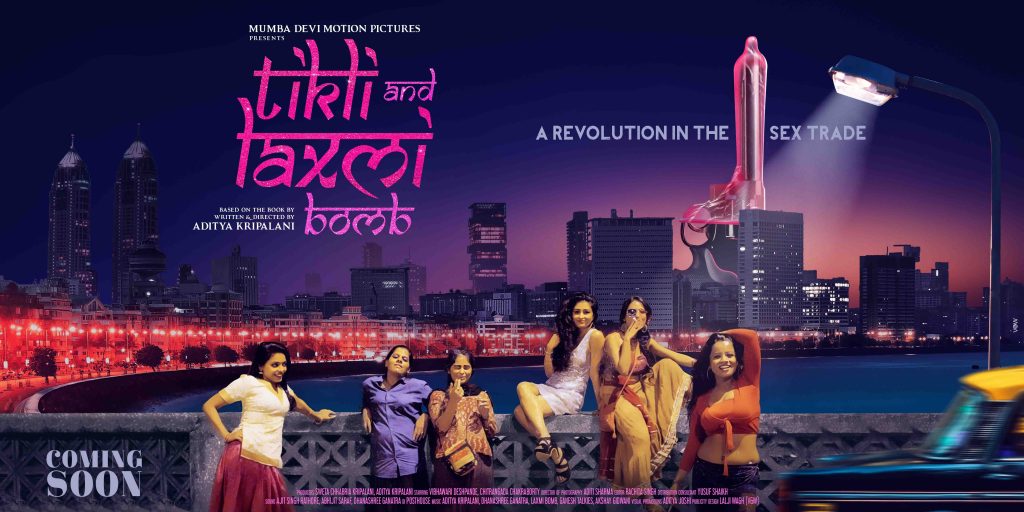I wrote Tikli and Laxmi Bomb, the novel, a day after my grandfather passed away. The past few years gifted me the ability to interact with the finality of death repeatedly, once when my grandmother passed away, and then within a year, again, when my grandfather passed away. The two emotions they most deeply signified were defiance and kindness. And from that dual virtue was born Tikli and Laxmi Bomb.
How would women run the world? How, when they lead others, would they be different from men? What would their obviously higher levels of sensitivity end up bequeathing them as leaders? Would they also run things in a hierarchical fashion? Or would it be slightly more of a cooperative where everyone had power and everyone pooled resources? The were questions I’d been wanting to answer. Fueled by the hope and beauty witnessed in films like Mother India, Mirch Masala, Queen, Thelma and Louise and many other feminist films, I wanted to write a revolution story that doesn’t end even before it begins. Also, the sex workers I’d met, weren’t as mayoos as our films had shown them to be until this time. From these feelings arose the characters of Laxmi and Tikli. Laxmi being the one who’s journey we are on and through whom we experience the novel, and Tikli being that repressed lively, buoyant, spirited side to Laxmi’s psyche that Laxmi had suppressed and forced back deep within the well of her subconscious, and Laxmi herself being a woman who’d given up. On Life. On work. On people in general. But most importantly, on hope.
What would happen when two sides to the same psyche were manifested as two different women and made to face off with each other? Would that psyche finally come together and become one? Or combust completely into a final annihilation of the other and so oneself? These were things I wanted to explore as a writer. I’d written the story as a 15 pager a while ago. But when I began to write it as a novel it becomes very clearly, Laxmi’s story.
The novel was well received and won Honorable Mentions at the London Book Festival, Amsterdam Book Festival, Great South East Book Festival and the Paris Book Festival, all new for me and the first time anything I wrote received any attention out of the country . But then what? If you have a message to give and only 10,000 people receive it because not many people read, is it worth the effort? Which is where the idea of making this into a movie came into my mind. I’d spent enough years as a practicing screenwriter after FTII and doing my post-grad in Film Screenplay Writing to know that expecting another director to see the story the way I saw it, was futile. I’d have to make it myself and to be able to shoot on real locations, to be able to make it within the budget I’d be able to put together, I’d have to make it without stars or starlets. There could be no permissions, no vanity vans, no shoo-shaa whatsoever.
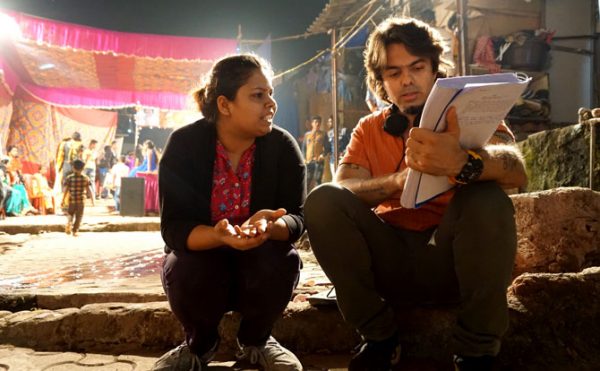
We then decided to crowdfund the film. We raised 25 lakhs via Wishberry and a lot of helpful friends who helped us out by being generous. Then my mom, my masi (mother’s sister) and in terms of percentages, most importantly, Sweta came in as a Co-Producer and put in the rest of the funds for the film, the overall budget going way beyond the crowdfunded amount. Nearly 4 times. Without all those people being generous I wouldn’t have been able to make this film. Without Sweta coming on board, I wouldn’t have been able to make this film the way we’ve made it. No two ways.
To cut to the chase, when I wrote the script, I left out a lot of stuff, but what really helped was that being a screenwriter at heart, I’ve always written my novels in a three-act structure. I approached some known actors for Tikli’s role and I kept meeting a ton of people for Laxmi. But nothing worked out. Till I was in Moscow and a friend of mine asked me if I’d watched Harishchandrachi Factory and I said no. I then proceeded to watch it and ended up contacting Vibhawari Deshpande (Vibha). A known actor and Vibha were then fixed as the leads on the film. We began to scout for locations, as the whole film needed to have real spaces and no sets. For the casting of the rest of the characters I was sure that I wanted to cast them all myself. So I used to watch two plays a week almost for the year that I was in Mumbai for this film before we shot. And so, I ended up meeting Mayur More, Divya Unny, Kritika Pande and Kamil Shaikh.
One of the things we’d done as preparation for the film was to do a test shoot of ten scenes from the film at the same locations we were going to use for the film. We used different actors, and a different camera, but it gave us all an idea of what we would be up against in terms of permissions etc. The test shoot was terrible. As I’d expected. But we sat down as a team and wrote down what each department needed to better, including me. And over the next six months, we all worked on it.
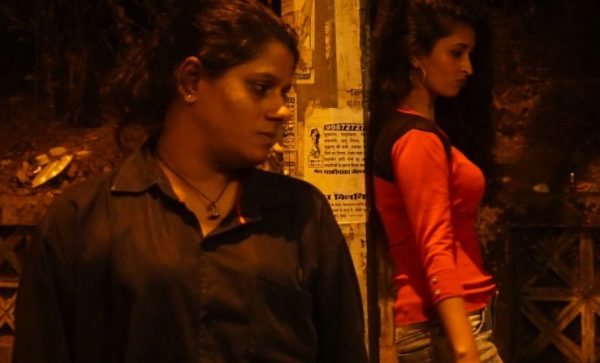
One more thing I did in preparation was to go to the Jeff Goldberg Studio in Bandra and just watch Jeff giving feedback to actors to better their performances. It was kind of him to allow me to do that. That taught me a lot about how not to intellectualize feedback. For example, instead of saying something like ‘That’s too loud, it doesn’t seem like a person like her would say that, a person with such a past’, I learnt that it’s better to say ‘Make it more intimate’. Or ‘Talk to her/him as if they’re standing two feet from you.’ Just more actionable feedback, playable choices. I also read a book called Directing Actors by Judith Weston. It helped me a lot.
We also, in preparation for the action scenes, shot the action scenes downstairs in our office building and edited them and put them together. Once we’d seen that they worked, we just replicated it with real actors on location during filming for the feature.
I’d read about Francis Ford Coppola and how he’d written something called a Godfather Notebook. So I began to write a ‘Master Book’ which my ADs jokingly call The Granth. It is a 600 page document with each scene, followed by a shot division, followed by ‘What to be mindful of’ for this scene on the day of the shoot, followed by what could go wrong, briefs for each actor in each scene, blocking for actors, and special notes. This book, helped me and the AD team get back into the creative mode, despite the large amount of fire fighting we had to do on set.
Two days before the shoot was to begin, after we’d already moved the shoot twice thanks to the known actor’s date issues, the actor and I parted ways over unresolvable differences. This was one of the most testing times for me as a producer/director. I took the decision to walk away from her because I was sure by then that I wouldn’t be able to make this film the way I saw it with her on board.
Was I to postpone the film, till I found a new lead? Or was I to continue without a lead actor, finish my first schedule which was with the other lead and her solo scenes? And then find a lead actor? Should I postpone the film itself? As this was the only saleable part of my film. I felt morale dropping as news of her and me parting spread through the film. And I chose to continue the first schedule, a very risky decision as a producer, for if we didn’t find someone within two weeks, we’d be really in a soup. The other actors like Vibha, Upendra Limaye, Suchitra Pillai were all very helpful and said they’d adjust dates for us based on the two week delay. Here I’d particularly like to thank Suchitra and Upendra sir for even taking this film on. They only did it for their belief in the story. And I’d never made anything before. For them, Vibha, Saharsh Kumar Shukla and all the other actors to have faith on me as a director was a big thing.
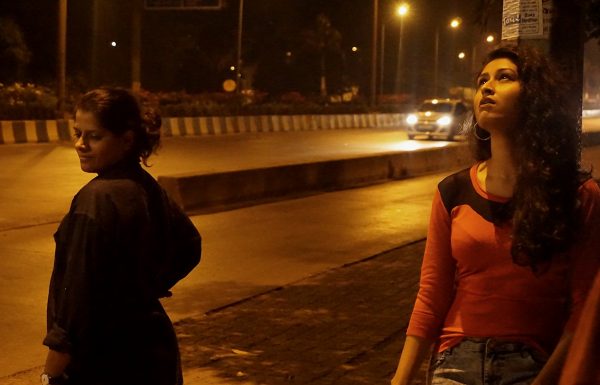
I then auditioned 35 actors for Tikli’s part. And we found Chitrangada Chakraborty, who is a gifted actor and lights up the screen. She came across as innocent yet in some sense wise as an actor and artist. She read the book in 24 hours and then the script, and then flew down from Kolkata for the audition. When we got Vibha and Chitra to audition together post Chitra’s selection into the second round, I saw a beautiful chemistry between the two. Exactly like I’d envisioned Tikli and Laxmi’s. But I noticed something softly maternal from Vibha’s side, not like that of a mother and daughter, for the age difference was just 8 odd years, but more like an elder sister. And I felt, aah, this is exactly where I want their relationship in the film to end up. Vibha and Chitra make for a director’s dream in terms of their performances. Vibha is warm, giving, friendly, a team player, always happy, smiling, willing to step towards you and has a wealth of theater experience at her fingertips. Chitra is instinctive, raw, has a very definite mind of her own and herself has sharpened her claws on stage before stepping in front of a camera. Once the camera starts she’s naturally a different person. They’re both good principled people leading life on their own terms and that helps them as artists and so as actors.
We set off into the shoot and shot all night for 50 nights, breaking every 4-5 days for a day to catch up on sleep. The shoot was grueling to say the least. Our Executive Producer was missing. We hardly saw him on the set. And our Line Producer was a first timer, Fahmida Khan. She helped us with everything, to be able to shoot on the roads, trains, food for the crew etc. but being a first time line producer, she didn’t understand that if she changed a location last minute the art department and lighting department were seriously affected. So was our shot division. And that kept happening. I’d realized through the test shoot that my cinematographer Aditi (Sharma) had the uncanny ability to be very instinctive about going into a scene and being able to shoot the whole thing in a single shot. To move at the right time, what to capture, what not to, how to trail and actor, so we were able to make our shoot style more like theater on the streets than coverage shooting. We didn’t do too many Over The Shoulder (OTS) shots, or Masters etc. The result was that you ended up seeing Tikli and Laxmi in one frame a lot. And then begin to miss them when that stops to happen.
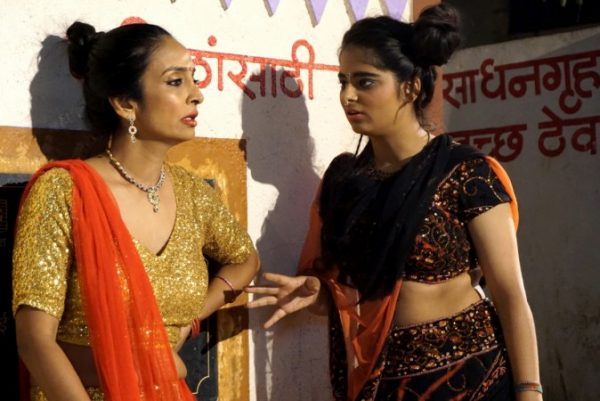
The girls waited patiently and were generally easy to work with. With a ton of casting and meeting people, I’d found Tsamchoe, in Kritika Pande, a beautifully fluid and childlike actor from the FTII, Pune and Sharanya, who’s one of the most important characters in the film, in Divya Unny, a journalist and theater professional. For Manda’s role, we requested Suchitra Pillai to come on board, changing her character arc a bit from the book and for Mhatre, the head pimp, Upendra Limaye. Beyond this, Kamil helped me with casting. He brought on board the talented, beautiful Rakhi Mansha and the mad Mia Meltzer, both of whom were such likeable actors that I began to add them to many more scenes as the shoot went on. Kamil also brought on board the incredibly talented Saharsh Kumar Shukla and our first meeting was momentous. We connected as FTII brethren and artistes immediately. Kamil also cast for the ACP of police’s character with Azad Ansari, the dirty cop character with Uday Atrolia and the drunken cop with Kiran Patil beautifully. All ‘Manjhe hue’ actors in their own right who brought life onto my screen.
Fortunately, we didn’t have any fights on set and the workshop Kamil and I had designed for the actors had already forged a deep bond between them. I also did an eye-to-eye exercise, taking actors to the side each time I felt that a certain depth was being lost. And we patiently paused for this wherever we were. Aditi did some surprising, beautiful and artistic work with the limited lighting and crew she had on hand. And I’m happy to say that we did not miss one scene, shot, or piece we’d set out to shoot in 50 days, itself an achievement for a first time director and crew. Our art was beautifully handled by Reshma Malayath from Kerala and Vishal Gyan Chandani, both first timers. Reshma insisted on calling it Architecture and that’s the credit in the film.
Through fatigued bodies, and pained minds, through changing locations and cop trouble, through strained equations that somehow held together, we finally finished shooting Tikli and Laxmi Bomb somewhere in March this year. And still didn’t hate each other. And we’d gotten everything we set out to. I felt like we’d sailed across an ocean and discovered a new land. A land where all of us could now be something else, something more.
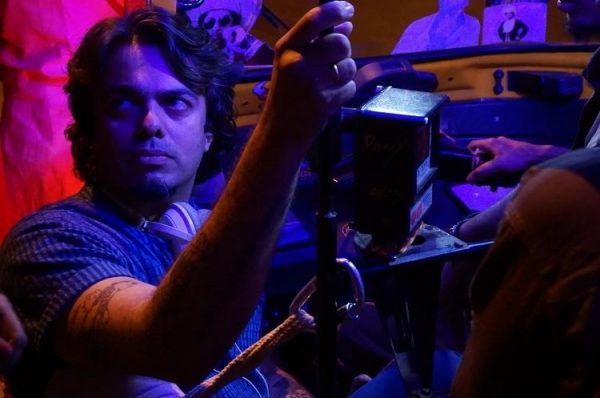
And I’d grown so much since being a novelist. I’d experienced the beauty of teamwork and how when human beings and artists work as one towards any one goal, you access the most beautiful of human virtues, sacrifice, love and respect, with everyone striving for more than their personal best. I understood that sometimes all people need to get by their day is to be heard, that I can be a monumental pain to deal with, that if I don’t let go of the personal pain I feel, this film will stall, that nothing is bigger than the film. I learnt that no job is too big to do the first time, no job is too small to do yourself, you have to be a certain amount of stupid and yet discerning and you lead not just with wisdom and patience but sometimes with tricks and handling. We’d all learnt so much. And we all now had a feature film on hand.


